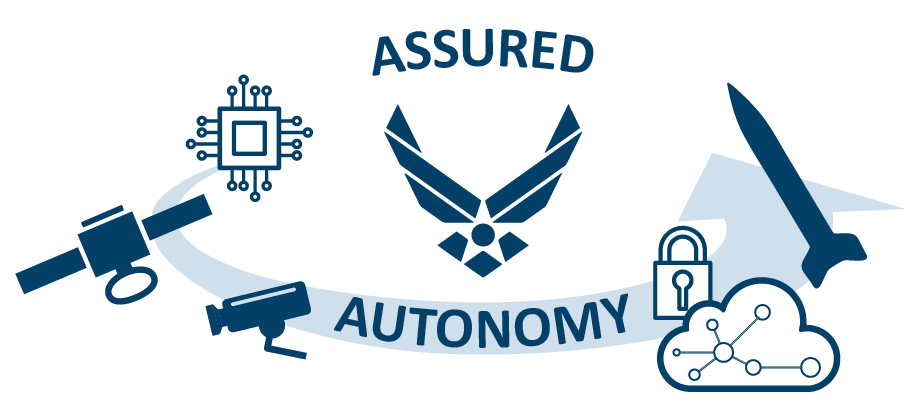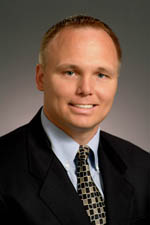
University Principal Investigators | |
Kevin Butler I am Associate Director of the Florida Institute for Cybersecurity Research and a
University Term Professor. I joined the University of Florida in 2014 as part of the UF Rising to National Preeminence Hiring Program. My research focuses on the security
of computer systems and networks. Recent work in my group has included securing embedded systems and protocols, establishing the trustworthiness of data and maintaing its
provenance, mobile device security, protection of Internet traffic and the SSL infrastructure, and attacks and defenses against the cloud infrastructure. Some of my other
research areas of interest include securing Internet routing, malware propagation, applied cryptosystems, adversarial machine learning, cyber-physical systems, and
trustworthy computing. I received a National Science Foundation CAREER award in 2013, and was named International Educator of the Year within the Herbert Wertheim College
of Engineering in 2017 for my work on developing global standards for securing digital financial services in the developing world. I am co-chair of the International
Telecommunication Union's Security, Infrastructure, and Trust Working Group as part of the Financial Inclusion Global Initiative. I am a Senior Member of the IEEE and
ACM, and co-founder of CryptoDrop.
| |
Warren Dixon, Ph. D.
Prof. Warren Dixon received his Ph.D. in 2000 from the Department of Electrical and Computer Engineering from Clemson University. He worked as a research
staff member and Eugene P. Wigner Fellow at Oak Ridge National Laboratory (ORNL) until 2004, when he joined the University of Florida in the Mechanical
and Aerospace Engineering Department. His main research interest has been the development and application of Lyapunov-based control techniques for
uncertain nonlinear systems. His work has been recognized by the (2017-2018 & 2012-2013) University of Florida College of Engineering Doctoral Dissertation Mentoring Award,
2015 & 2009 American Automatic Control Council (AACC) O. Hugo Schuck (Best Paper) Award, the 2013 Fred Ellersick
Award for Best Overall MILCOM Paper, the 2011 American Society of Mechanical Engineers (ASME) Dynamics Systems and Control Division Outstanding Young Investigator Award, the 2006 IEEE Robotics and Automation
Society (RAS) Early Academic Career Award, an NSF CAREER Award (2006-2011), the 2004 Department of Energy Outstanding Mentor Award, and the 2001 ORNL
Early Career Award for Engineering Achievement. He is an ASME Fellow and IEEE Fellow, an IEEE Control Systems Society (CSS) Distinguished Lecturer,
and served as the Director of Operations for the Executive Committee of the IEEE CSS Board of Governors (2012-2015). He was awarded the Air Force
Commander's Public Service Award (2016) for his contributions to the U.S. Air Force Science Advisory Board. He is currently or formerly
an associate editor for ASME Journal of Journal of Dynamic Systems, Measurement and Control,
Automatica, IEEE Control Systems, IEEE Transactions on Systems Man and Cybernetics: Part B Cybernetics, and the International Journal of Robust and Nonlinear Control. | |
|
Norman Fitz-Coy Prof. Norman Fitz-Coy received his Ph. D. in 1990 from Auburn University. His expertise include:
Dynamics and control of multibody systems, orbital dynamics, flight mechanics, vehicle health management, and game theory. His current activities include: Design of control strategies
for systems with multi-objective criteria, dynamics and control of multiple flexible-body dynamical systems, deployment dynamics for satellites and spacecraft, autonomous rendezvous
and docking, ground vehicle dynamics, cooperative control for formation flight, system health monitoring, and strategies for reconfigurable systems.
| |
|
Matthew Hale Matthew Hale received his BSE summa cum laude from the University of Pennsylvania and
received his MS and PhD from Georgia Tech. His work is driven by designing and analyzing multi-agent coordination algorithms that function well under challenging conditions,
such as asynchronous information sharing, noisy communications, and user privacy requirements. His work deploys these algorithms on teams of flying and ground robots,
providing both validation of the underlying theory and further research directions.
| |
|
Miroslav Pajic I am Nortel Networks Assistant Professor in the Departments of Electrical and Computer
Engineering and Computer Science and the director of the Cyber-Physical Systems Lab (CPSL) at Duke University. My research interests focus on design and analysis of cyber-physical
systems and in particular, embedded and distributed/networked control, real-time and embedded systems, and high-confidence medical devices and systems. I received my Ph.D. in Electrical
Engineering from the University of Pennsylvania. I also received Dipl. Ing. (5 years) and M.S. degrees in Electrical Engineering from University of Belgrade, and M.S. in Electrical
Engineering from UPenn. I am an associate editor in the ACM Transactions on Computing for Healthcare (ACM HEALTH) and a co-chair of the 2019 ACM/IEEE International Conference on
Cyber-Physical Systems (ICCPS'19).
| |
|
Alicia Petersen Alicia Petersen is an Assistant Professor of Mechanical and Aerospace Engineering (MAE)
at the University of Florida. Through data analysis, instrumentation and modeling, Dr. Petersen researches the kinetic physics, magnetism and dynamics at play during the transit and interaction of
space weather phenomena in the inner solar system, their impacts on spacecraft, and strategies for mitigating the impacts of space weather.
Dr. Petersen joined the Department of MAE in 2022 after being an NRC Research Fellow at the Space Vehicles Directorate of the Air Force Research Laboratory where she researched the propagation of
space weather events in order to improve space weather forecasting, with the aim of enhancing space situational awareness and protecting space-based assets for the US Air Force and Space Force.
Dr. Petersen earned her PhD and MS from the Climate and Space Sciences and Engineering Dept. at the University of Michigan.
| |
|
Chrispy Petersen Dr. Christopher “Chrispy” Petersen is an Assistant Professor in the Mechanical and
Aerospace Engineering (MAE) Department at the University of Florida. His research interests lie in anything related to space guidance, navigation, control, and autonomy, with particular focus of
making techniques real-time implementable and usable for operators. While all of space interests him, his research mostly is concerned with Rendezvous, Proximity Operations, and Docking (RPOD)
and any satellite in the eXtra Geostationary (XGEO) regime (above geostationary orbit, to the Moon, and beyond).
Dr. Chrispy Petersen joined the Department in 2022. Before that, he was a Research Aerospace Engineer and a Deputy Program Manager at the Space Vehicles Directorate of the U.S. Air Force Research
Laboratory (AFRL/RV) located at Kirtland Air Force Base in New Mexico. While at AFRL he worked on 10+ satellite experiments, developing, deploying, and executing guidance, navigation, control,
and autonomy (GNCA) algorithms for ground and on-orbit use. As a highlight, Dr. Chrispy Petersen was the PI for advanced autonomous guidance algorithms used by the Mycroft flight experiment which
has been recognized as “…the AF’s biggest game changer” for space warfighters. Before he left, he served as the Deputy Program Manager of the Autonomous Demonstrations and Orbital eXperiments (ADOX)
Portfolio, which is a series of satellite demonstrations focused on autonomy technologies to enable satellite inspection, XGEO space domain awareness and logistics in GEO including advanced propulsion
and refueling. For his accomplishments, in 2021 he was awarded the AFRL Early Career Award. In addition to his duties at AFRL, he was a Research Professor at the University of New Mexico in the
Electrical and Computer Engineering Department, teaching classes on nonlinear control and spacecraft dynamics, estimation, and control.
| |
|
Ricardo Sanfelice Ricardo G. Sanfelice received the B.S. degree in Electronics Engineering from the
Universidad de Mar del Plata, Buenos Aires, Argentina, in 2001, and the M.S. and Ph.D. degrees in Electrical and Computer Engineering from the University of California, Santa Barbara,
CA, USA, in 2004 and 2007, respectively. In 2007 and 2008, he held postdoctoral positions at the Laboratory for Information and Decision Systems at the Massachusetts Institute of
Technology and at the Centre Automatique et Systèmes at the École de Mines de Paris. In 2009, he joined the faculty of the Department of Aerospace and Mechanical Engineering at the
University of Arizona, Tucson, AZ, USA, where he was an Assistant Professor. In 2014, he joined the University of California, Santa Cruz, CA, USA, where he is currently Professor
in the Department of Electrical and Computer Engineering. Prof. Sanfelice is the recipient of the 2013 SIAM Control and Systems Theory Prize, the National Science Foundation CAREER
award, the Air Force Young Investigator Research Award, and the 2010 IEEE Control Systems Magazine Outstanding Paper Award. His research interests are in modeling, stability, robust
control, observer design, and simulation of nonlinear and hybrid systems with applications to power systems, aerospace, and biology.
| |
|
John Shea Prof. John Shea received his Ph. D. in 1998 from Clemson University. His expertise include:
Wireless communication & networking, military & secure communication, cross-layer design, networked autonomous vehicles.
| |
|
Ufuk Topcu Dr. Topcu joined the Department of Aerospace Engineering and Engineering Mechanics at The University
of Texas at Austin as an assistant professor in Fall 2015. He received his Ph.D. degree from the University of California at Berkeley in 2008. Before joining The University of Texas,
he was with the Department of Electrical and Systems Engineering at the University of Pennsylvania. He was a postdoctoral scholar at California Institute of Technology until 2012.
| |
|
Michael Zavlanos Michael M. Zavlanos received the Diploma in mechanical engineering from the National
Technical University of Athens (NTUA), Athens, Greece, in 2002, and the M.S.E. and Ph.D. degrees in electrical and systems engineering from the University of Pennsylvania, Philadelphia,
PA, in 2005 and 2008, respectively. He is currently the Mary Milus Yoh and Harold L. Yoh Jr. Associate Professor of the Department of Mechanical Engineering and Materials Science at Duke
University, Durham, NC. He also holds a secondary appointment in the Department of Electrical and Computer Engineering and the Department of Computer Science. Prior to joining Duke
University, he was an Assistant Professor in the Department of Mechanical Engineering at Stevens Institute of Technology, Hoboken, NJ, and a Postdoctoral Researcher in the GRASP Lab,
University of Pennsylvania, Philadelphia, PA. His research focuses on control theory and robotics and, in particular, networked and distributed control systems, cyber-physical systems,
and distributed robotics. He is a recipient of various awards including the 2014 Office of Naval Research Young Investigator Program (YIP) Award and the 2011 National Science Foundation
Faculty Early Career Development (CAREER) Award.
|